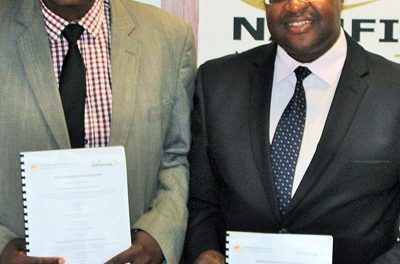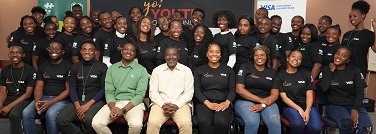
Namwandi addresses UNESCO General Conference

David Namwandi
He said, after discussing the post 2015 development agenda, member states now have a duty, through consensus, to provide the strategic direction to ensure that UNESCO provides a sharpened and resolute leadership in the development of the post-2015 global development agenda.
“Namibia supports the strategic objective of developing education systems to foster holistic quality lifelong learning opportunities. Namibia also supports a right-based approach to education, quality education and equity in education,” he said.
Addressing various World leaders, Namwandi said Namibia supports empowering learners to be creative thinkers and responsible global citizens at all times.
“We believe that there is a need for a paradigm shift in the manner in which curricula are designed. For Namibia the salvation lies in exposing young people to vocational and technical training. Education must generate wealth and work for the nations of the world,” he said. He said that the 21st century education should be embarked on by all Member States as it enhances quality of life and that of human capital.
“Certainly this education shall deal effectively with complex planetary issues and societal sustainability. Namibia supports the role of UNESCO in water resources management, the development and implementation of science, technology and innovation policies, capacity building in the sciences, technology and engineering, and the management of natural disasters,” added Namwandi.
He informed the leaders that Namibia understands and emphasize the importance of activities aimed at strengthening ethics systems, the promotion of democracy and human rights, and the fight against racism, discrimination, xenophobia and related intolerance.
“The development and implementation of youth programmes within the 37 C/5 has become critical, if Member States are to diffuse the ticking youth time bomb,” he added.
He further encouraged UNESCO to assist Member States in developing policy frameworks to facilitate equitable access to information and knowledge. “We welcome the Gender Equality Action Plan and the Operational Strategy for Priority Africa, and look forward to effective implementation of activities foreseen under these two global priorities,” Namwandi added.











































